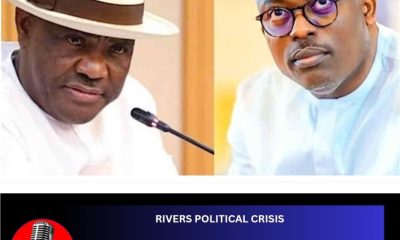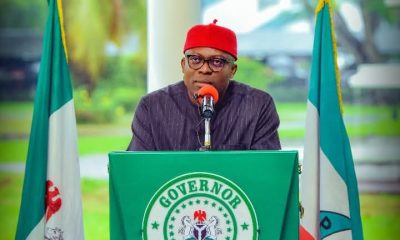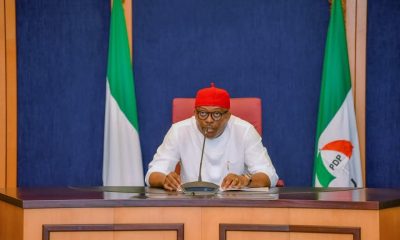Columns
Now Fubara Has “conquered” Wike, What’s next? By Rotimi Fasan
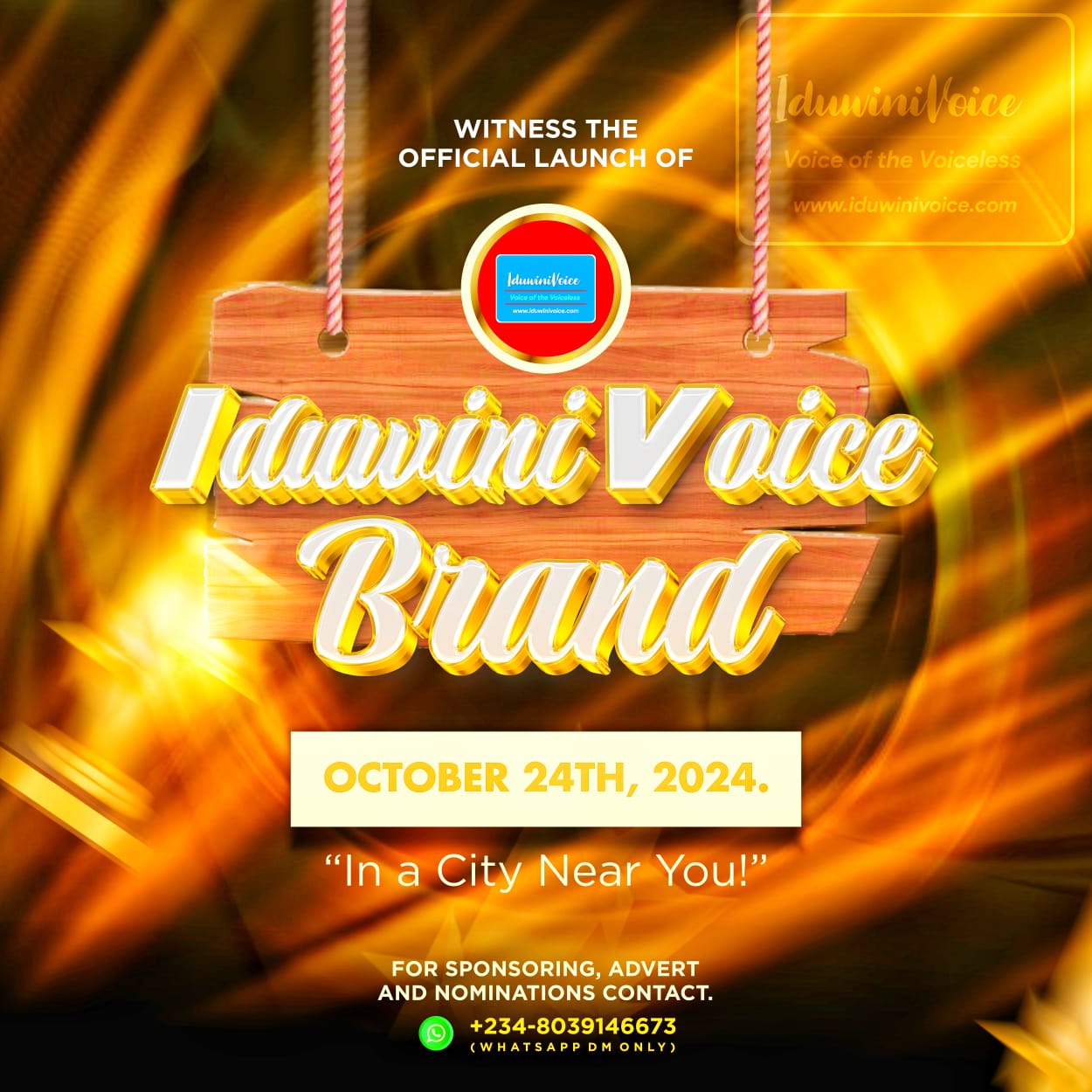
Now Fubara Has “conquered” Wike, What’s next? By Rotimi Fasan
Action Peoples Party, Sim Fubara’s proxy party, the special purpose vehicle through which he is establishing his own hegemony, is certainly full of action, having made a near clean-sweep of the available seats in the 23 Local Government Areas of Rivers State. Twenty two of these seats are now under the control of the APP, an unknown quantity of a political party that has suddenly emerged and taken over control of the LGAs in that state in the last couple of weeks.
It’s the same story from Akwa Ibom State to Benue State- elections conducted by State Independent Electoral Commissions are a charade. They are nothing if not the kind of political magic that only a Nigerian politician is capable of. Siminalayi Fubara, the Rivers State governor, appears to be learning the wrong lessons fast. With this, he must fancy himself as a godfather even if he would like to pretend he is not. In his book, only Nyesom Wike can be a godfather.
For many of his supporters in the Peoples Democratic Party, especially the do-gooders within and outside the state, the so-called elders and leaders that have been fanning the embers of division and fishing in troubled waters while posturing as impartial arbiters, Sim Fubara is the new power house of Rivers State politics. He has had to do this standing over the carcass of the party that brought him to power, and some in that party seem to be happy or, at least, satisfied with it.
Former Vice President, Atiku Abubakar, has praised Fubara for standing up for the people and putting an end to political godfatherism in Rivers. Has he not called the bluff of “federal might” epitomised in his sharp criticism of Kayode Egbetokun, the Inspector General of Police, and the entire Police establishment that stayed away from the venues of the election in a feigned and selective obedience of a court ruling?
Others in his camp have spoken in a similar vein of praising him for securing his freedom from an overbearing benefactor and godfather. Fubara is himself savouring the praises and swelling with pride. His natural stoop and slightly raised shoulders seem to be rising some inches more and he is surely getting more confident in his utterances. But is he really free or has he simply exchanged one godfather for several others?
No doubt, he is the godfather of the winners of the chairs across the local councils in the state. Those discerning enough would have seen and heard this in his words to his new followers during the swearing-in ceremony that held, unprecedentedly, on a Sunday, a day after the election, of all the possible days that the new chairpersons could have been sworn-in. Fubara was in a hurry to beat the October 31 Supreme Court deadline for the conduct of all local government elections or there would be no allocation to the local governments still under any form of interim arrangement.
Fubara told the chairmen in very clear terms that none of them under normal circumstances, by which he meant the dispensation he had supposedly just terminated, the “ancien regime” of godfathers symbolised by Wike- none of them he said could have emerged as chair of their LGA under normal circumstances. In his own words: “Na who dash monkey…?” Sim Fubara should have completed that folk sarcasm: “Na who dash monkey banana?” by going ahead to tell the world that he was, indeed, the one, the new godfather, that dashed monkey banana in this case. To go by his metaphor, these monkeys (read chairmen), now created or re-created in his image, must, like true monkeys, simulate his every move and act in his image. They must anticipate his command and do his bidding. He has paid the piper and must now call the tune to which the men must dance.
But he didn’t complete his statement and left his concluding words hanging in the air for the wise among his listeners, especially the chairs, to fill. There might not have been any menace in his voice but only a fool would fail to get the import of his words, a veiled warning to these beneficiaries of his generousity to know where their bread was/is buttered and never forget their benefactor. The governor may have won this battle but has he won the war? The war is still raging with the violence now erupting in the different local government council headquarters which the police vacated upon the emergence of the new council heads.
What Governor Fubara has not been able to say is that he is also the product of a godfather and that without that godfather: Na who dash monkey. Fubara could not have emerged the governor of Rivers but for Wike who also rose through a process of godfatherism. In an old footage that was exhumed by his opponents shortly before the latest election, Wike in condemnation of godfatherism can be heard saying Rivers is not Lagos just as Godwin Obaseki has been saying since 2019.
We don’t know if Obaseki still believes his own words in the wake of the defeat of his candidate three weeks ago. The remark by Wike was made against Bola Tinubu in the heat of his campaign to unseat Akinwumi Ambode as governor. Every governor who rose through the instrumentality of a godfather has gone ahead to castigate the process while erecting their own fiefdom. That was what recently played out in the governorship election in Edo State.
An emerging godfather rails against their benefactor and, sometimes, a so-called federal might. While some succeed in that struggle, others fail. It’s all a matter of strategy. Sim Fubara’s problem is that he was too quick to claim freedom. The patience that helped him to deceive Wike into seeing him as pliant enough to be chosen as governor should have guided him to wait at least two years (time enough to register his presence with the people of Rivers, govern a bit to take over the structures of governance) before showing his hand. But he couldn’t just wait to be his own man.
The consequence is that he has spent at least 12 of the last 18 months he has been in office fighting fire and trying to keep Wike at bay. The PDP structure in that state is firmly under the control of Wike just as a part of the APC bows to him. What happened in Rivers last week could not have been an election. It was a selection and a challenge of its outcome in court might reveal a can of worms. Does a voters’ register of these APP members exist and are these winners in them? Can Fubara stay the course and win re-election on the platform of APP?
Columns
Chief Denis Otuaro, the Guiding Star of PAP
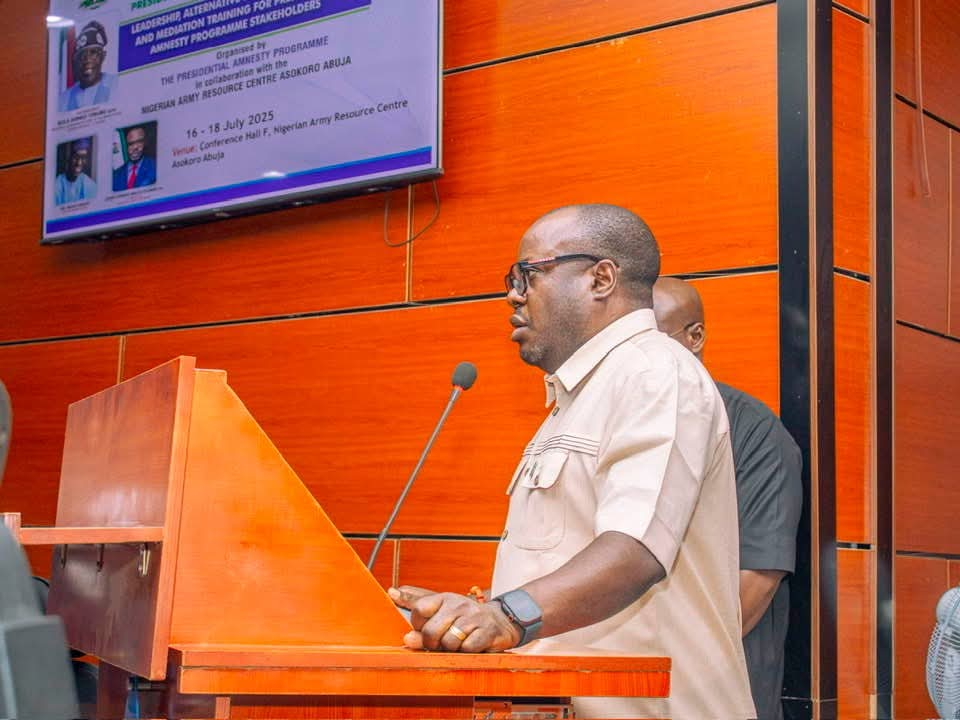
By: Professor Binebai
The Niger Delta has found a beacon of hope in Chief Dr. Dennis Otuaro, a leader of unimpeachable integrity, courage, and vision. As the helm of the Presidential Amnesty Programme (PAP), he has emerged as a champion of transformation, inspiring a region and a nation with his unwavering commitment to empowerment and progress.
In the realm of Nigerian leadership, there are those who leave an indelible mark on the sands of time, and Chief Dr. Dennis Otuaro is one such luminary. As the helm of the Presidential Amnesty Programme (PAP), he has etched a narrative of hope, redemption, and triumph, illuminating the path for the people of the Niger Delta. This tribute is a celebration of his extraordinary leadership, vision, and unwavering commitment to the cause of empowering the youths and transforming the region.
Chief Denis Otuaro’s stewardship of the Presidential Amnesty Programme (PAP) has indeed been a renaissance, a majestic sunrise after a long, dark night, as he infuses the initiative with the radiance of a new dawn.
Like the mythical Anansi, the wise and cunning spider of West African folklore, Otuaro’s leadership has woven an intricate web of hope and opportunity, capturing the challenges of the Niger Delta and transforming them into a rich mosaic of promise and progress. His vision, akin to that of the venerable Oracle of Delphi, has deciphered the complexities of post-conflict reconstruction, guiding the demobilised youths through the labyrinth of uncertainty, and into the bright light of empowerment and redemption.
Otuaro’s journey has been sustained by a resolute commitment to the cause, his leadership style a masterful blend of courage, wisdom, and compassion. His tenure has been marked by a symphony of progress, as the PAP, under his guidance, has orchestrated a harmonious balance of pacifism and pragmatism, transforming the region into a veritable Garden of Eden.
Like Athena, the Greek goddess of wisdom, Otuaro wields the power of transformation, his touch turning the arid landscape of despair into a lush oasis of hope and prosperity. His leadership has become a byword for sagacity, a testament to the transformative power of vision, courage, and compassion.
In the pantheon of Nigerian leaders, Otuaro’s name shall be etched alongside the greats, his legacy a shining testament to the indomitable human spirit, as he continues to weave a new narrative of hope, redemption, and triumph for the people of the Niger Delta.
The Niger Delta has found a leader of repute, a leader of courage, a leader of transformation, a leader of goodwill in the PAP. Let egocentric economic buccaneers and demonic agencies stop their campaign of calumny against this leader of glory.
To those who seek to undermine his efforts, we say: let envy and malice be silenced! Let the progress of the Niger Delta be the benchmark for greatness! Let Otuaro’s leadership be the inspiration for a new generation of leaders!
Columns
A Legendary Legacy: The Enduring Odyssey of High Chief (Dr.) Government Oweizide Ekpemupolo
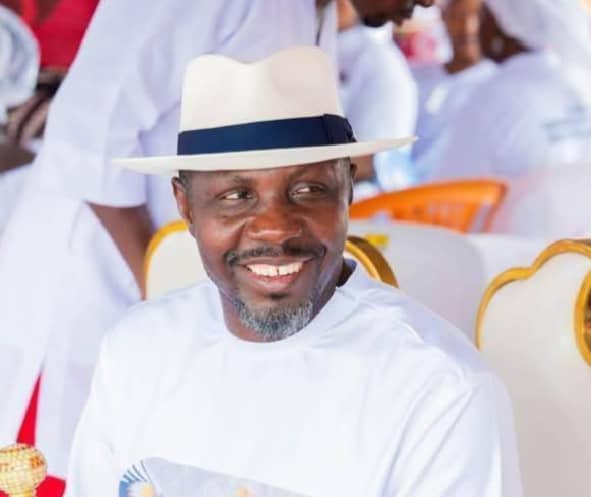
By: Professor Ben Binebai
In the realm of Nigerian leadership, one name resonates with mythical significance – High Chief (Dr.) Government Oweizide Ekpemupolo, affectionately known as Tompolo. Born on 12 April 1971, in Warri, Delta State, Tompolo has etched his name in the annals of history, leaving an indelible mark on the Niger Delta region. As a former militant commander of the Movement for the Emancipation of the Niger Delta (MEND) and chief priest of the Egbesu deity, he has navigated the treacherous waters of war and peace, leveraging his remarkable journey to bring succour and development to his people.
Tompolo’s metamorphosis from a militant leader to a peace advocate is a testament to his unwavering commitment to the progress of the Niger Delta. His decision to embrace the Amnesty Programme in 2009 marked a turning point, as he laid down arms and picked up the mantle of transformation. Today, he is revered as a hero, celebrated for taming the turbulent waters of the Creek boys and settling major political crises in the region. By putting the Ijaw image on the Nigerian map, Tompolo has redefined the narrative, showcasing the rich cultural heritage and resilience of the Ijaw people to the world.
A nationalist and statesman emerging from the boiling pot of agitation in the Niger Delta, Tompolo has consistently demonstrated his commitment to the development and progress of his people. His agency operates in close collaboration with the government, working tirelessly to implement projects and initiatives that benefit the Niger Delta region. His leadership style is characterised by quiet strength, strategic thinking, and an unwavering commitment to the progress of his people. His efforts have earned him recognition and accolades from various quarters, solidifying his position as a dependable pillar of the Ijaw nation.
As the last voice of the Ijaw nation, Tompolo’s legacy continues to inspire hope and progress for generations to come. With institutions established for national economic stability and prosperity, his impact will be felt for years to come. Tompolo’s story serves as a beacon of hope and resilience, inspiring his people to strive for greatness.
God bless this emergent leader of the Ijaw nation.
Columns
YOUNA: WARRI CRIES FOR PEACE AND JUJUSTICE
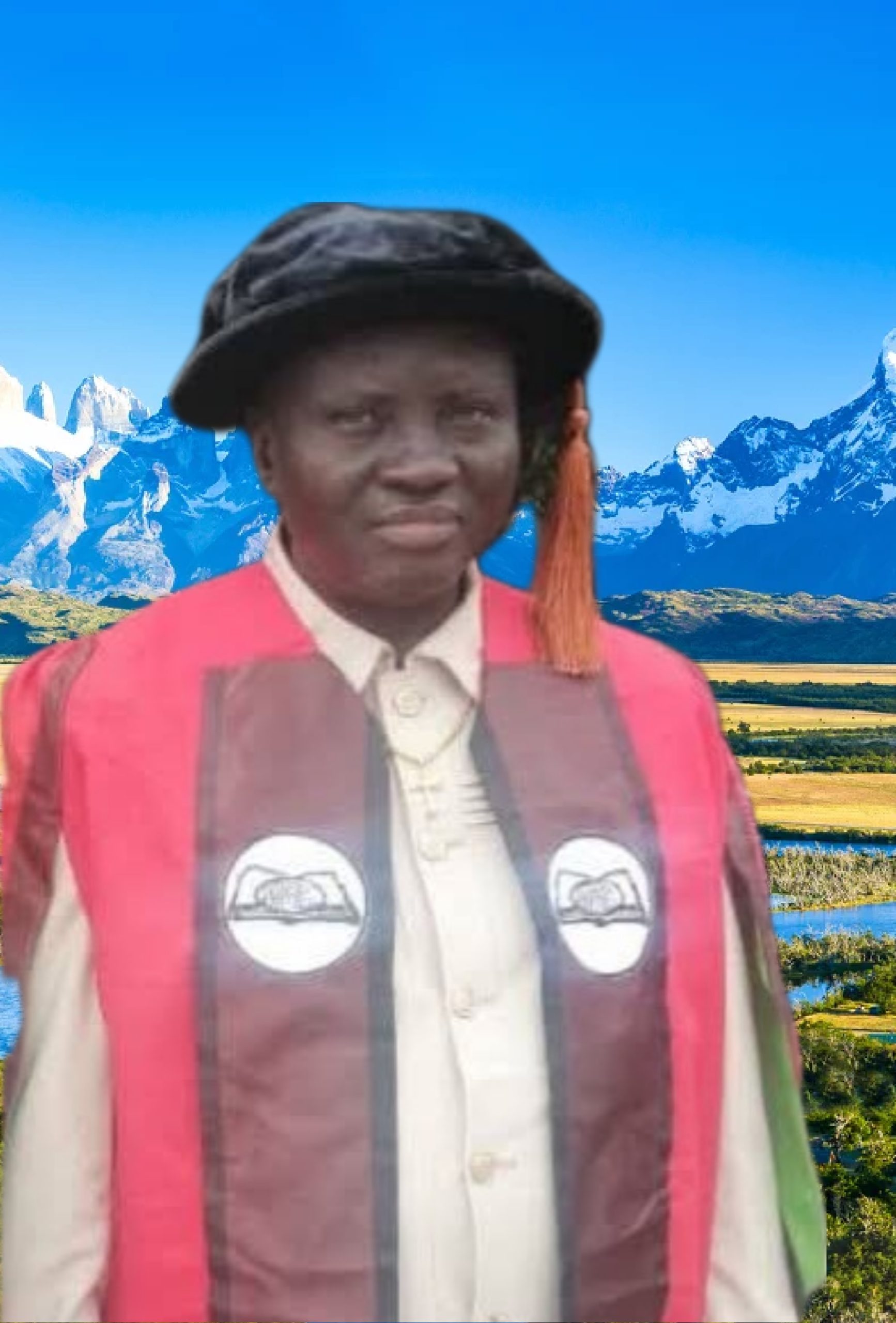
By: Ben Binebai
In the Niger Delta region of Nigeria, a city cries out for peace, justice, and unity. Warri, a land of rich cultural heritage and economic significance, has been plagued by recurring crises, sparked by provocative actions and claims of ownership by the Itsekiri group. The cry of Warri is a call to action, a reminder that our diversity is a strength, not a weakness, and that our common humanity is worth fighting for.
The Ijaw, Urhobo, and Itsekiri communities have coexisted in Warri for centuries, sharing a rich cultural heritage and a deep connection to the land. Occasionally uniting but deeply disunited because power and hegemony have often overshadowed their shared humanity, the people of Warri yearn for a future where their differences are celebrated, and their commonalities are the foundation of their unity. Warri’s significance extends beyond its current boundaries, as it has been a hub of economic and cultural activity for centuries. Before 1952, Warri was a thriving commercial centre, with the Ijaw, Urhobo, and Itsekiri communities contributing to its growth and development.
The city’s strategic location and access to the Niger Delta’s vast resources made it an attractive location for trade and commerce. Understanding Warri’s rich history and cultural heritage is essential to finding a lasting solution to the crisis.
It is time for truth to prevail to offer a lasting solution to the Warri crisis. The canoe of godfatherism should be withdrawn for the rule of law and for peace and progress to triumph.
The lie of exclusive ownership of Warri resists termination due to several factors, including:
Outdated court judgments: The Itsekiri establishment continues to rely on outdated court judgments, such as the 1925 judgment, to support their claim of ownership, despite subsequent judgments repudiating its validity.
Lack of political will: Successive governments have failed to address the problem and take the right and just decision, allowing the crisis to persist.
Absolutist claims: The Itsekiri claim is absolutist, while the Urhobo and Ijaw claims are limited, recognising ownership of portions of Warri by other communities.
Historical narratives can be deeply ingrained*: People’s understanding of their history and identity can be shaped by long-standing narratives, making it hard to change their perspectives.
Emotions and biases can override facts: When emotions and biases are strongly tied to a particular narrative, people may resist changing their views, even in the face of contradictory evidence.
Power dynamics can influence narrative control: Those in positions of power may use their influence to shape and maintain certain narratives, making it harder to correct lies and misconceptions.
Moreover, leadership plays a crucial role in shaping the future of Warri. As the saying goes, “When leaders refuse to embrace sacrifice, society dies.” Leaders who prioritise the greater good, make tough decisions, and invest in the future can help build a more harmonious and prosperous society. It is time for the leaders of Warri to put the needs of their people first and work towards a brighter future.
The cry of Warri is a call to action, a reminder that our diversity is a strength, not a weakness. Let us work towards a brighter, more harmonious future, where the beauty of our differences is celebrated, and our common humanity is cherished. May the cry of Warri be heard, and may we rise to the challenge of building a better tomorrow for all its people.

